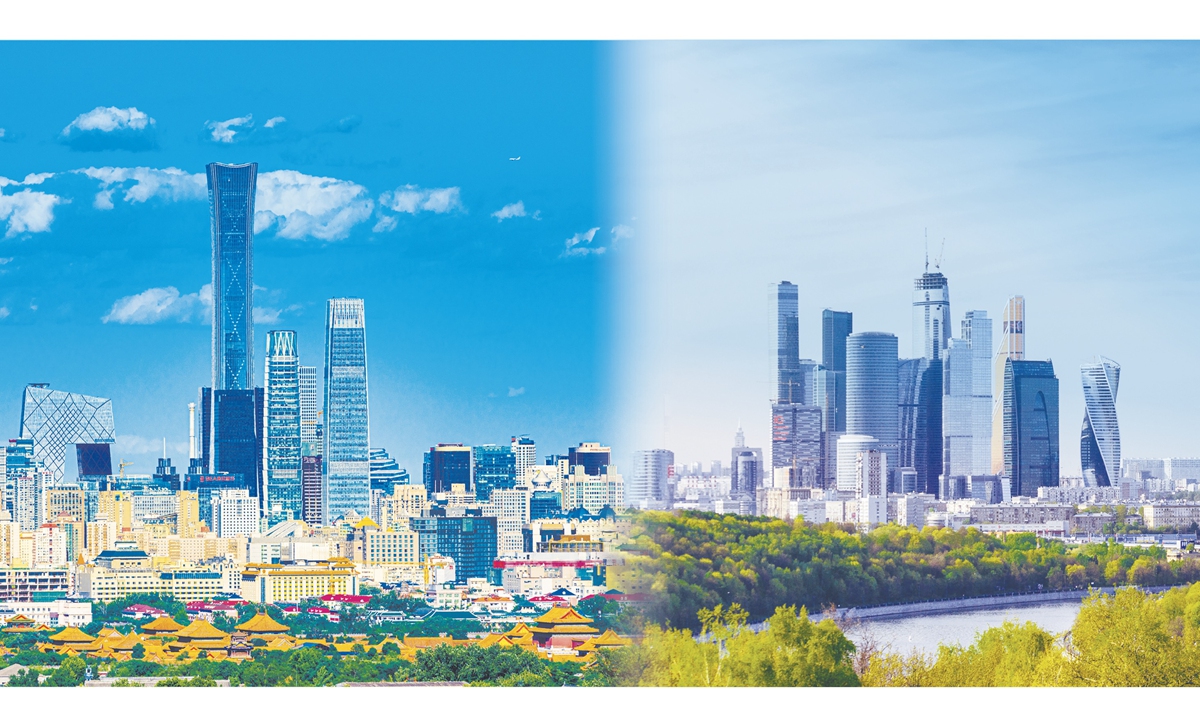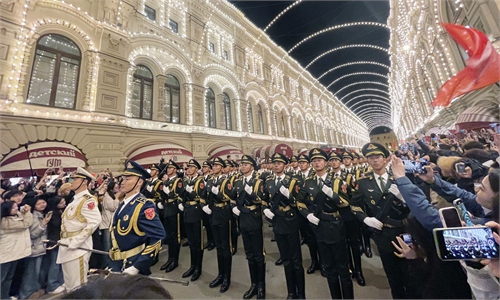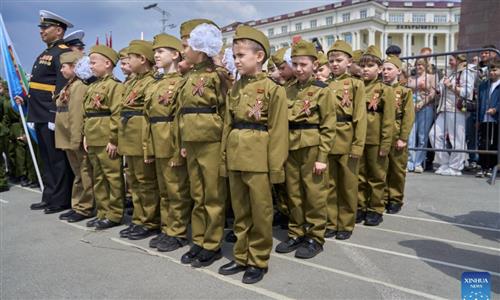Rehearsal footage released by China Central Television (CCTV) of the upcoming V-Day military parade. Photo: screenshot of CCTV
The Tiananmen Square and Chang'an Avenue in Beijing are ready to host the grand ceremony on September 3 to commemorate the 80th anniversary of the victory in the Chinese People's War of Resistance Against Japanese Aggression and the World Anti-Fascist War. On Monday, China Central Television (CCTV) revealed the specific arrangements for this event.
The grand event includes a 70-minute military parade. The parade is an institutionalized arrangements for national commemorative parades, and key component of the commemorative activities, carrying significant political and historical importance, per the CCTV report.
The military parade is conducted in two steps: a military review and a march-past.
In the military review part, the troops will line up along the Chang'an Avenue, to receive review from President Xi Jinping, also general secretary of the Communist Party of China (CPC) Central Committee and chairman of the Central Military Commission. During the parade march-past, airborne flag-guarding echelons, foot formations, battle flag formations, armament columns and aerial echelons will pass through or fly across Tiananmen Square in order.
A total of 45 formations and echelons will be involved in the parade.
The airborne flag-guarding echelons, composed of multiple helicopter types in various formations, will lead the parade. By escorting the flags, forming symbolic characters, and displaying banners, the echelons will reflect the nation's growing prosperity and the military's continuous development under the leadership of the Communist Party of China, proclaiming to the world the great truth of the inevitable victory of justice, peace, and the people, according to the CCTV report.
Foot formations will reflect "an old and a new," the report said. The "old" refers to veteran units from the War of Resistance Against Japanese Aggression, with personnel primarily drawn from units descended from the Eighth Route Army, New Fourth Army, Northeast Anti-Japanese United Army, South China guerrilla forces, and militias from provinces with wartime revolutionary bases. The "new" reflects the modern structure of military forces, including the "three-in-one" system of armed forces.
The battle flag formations represent the heroic legacy forged in the flames of the War of Resistance Against Japanese Aggression. From countless heroes and numerous meritorious flags, a selection of representative flags from different periods, regions, and units has been chosen. These flags, carried by personnel from their respective units, symbolize the enduring spirit of the war, reflecting the people's armed forces' fearless resolve and forward momentum in the face of challenges, per the report.
The armament columns are organized into combat groups based on real combat scenarios, including ground combat, maritime combat, air and missile defense, information warfare, unmanned combat, logistics support, and strategic strike groups. Many of these feature cutting-edge equipment representing the evolution of modern warfare, including some critical national assets, fully demonstrating the People's Liberation Army's formidable capabilities to triumph in modern conflicts.
The aerial echelons, organized in a modular and systematic manner, will consist of advanced early warning and command aircraft, fighters, bombers, transport planes, and more, covering nearly all active main combat aircraft types of the People's Liberation Army (PLA). Many are high-profile "star" equipment, with some making their public debut, fully showcasing the leapfrog development of the PLA's air combat capabilities.
What's more, over 1,000 personnel will form the largest joint military band in the history of parades of the People's Republic of China, performing in front of the Monument to the People's Heroes on Tiananmen Square, per the CCTV report.
The band will play well-known classic songs from the War of Resistance Against Japanese Aggression, evoking memories of that arduous era and honoring the heroes and martyrs who sacrificed their lives for national independence and freedom. New compositions reflecting contemporary themes and the vigor of a strong military will also be performed for the first time in Tiananmen Square.
Global Times







